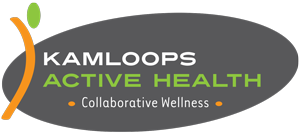Fall Uncertainty
by Dr. Katie Hamilton ND
Let’s talk about the return to work and school in the time of COVID-19
Wow, firstly, tread lightly. I mean there just is not a right or wrong decision. We’ve all been wracking our brains about the risks, sending our kids to school, trying to somehow work with our kids at home, masks, new protocols, work changes… it’s overwhelming. So when it comes to stepping into fall, step gently. Gently with yourself, gently with your decisions, gently with the changes and transitions.
In terms of COVID-19, at this point we’re in its infancy… despite the mountains of stress, wine and other coping strategies which suggest otherwise, we’re in the beginning. And this means that, for now, there is no good evidence on how to tackle it, apart of course, from hand washing, physical distancing and masking. But this will not last forever, and yes, we will get there.
That being said, let’s talk about what we do know. We know that the immune system, like every other aspect of our beings, requires a certain degree of nourishment for optimization.
- SLEEP – although not always in our control, as every parent knows, sleep is essential. Sleep deprivation suppresses our immune function, not to mention mood and the capacity to cope and often it’s actually the immune suppression that happens first. So whenever possible, create your serenity – darkness, quiet, no screens (or screams!) – rest.
- STRESS and our abilities to COPE – psychoneuroimmunology is very real and stress absolutely prevents the immune system from functioning optimally. Stressors are not all within our control, so bring attention and focus to what is in our control. Breathe, ground your feet, believe in your strength.
- NUTRITION – as in every other pillar of health, our immune system requires healthy food. Lots of vegetables/ greens, whole grains, beans, nuts/seeds, a variety of fruits/ colours, healthy fats/oils and lean sources of protein, with less sugar, red meat and alcohol.
- EXERCISE and HYDRATION – regular exercise promotes optimal functioning of the body, including the immune system. Aim for 8 cups of water per day to allow for adequate detoxification, elimination and repletion.
- VITAMINS – not every person will need to supplement but the nutrients to think about in terms of immune involvement include:
- Vitamin A & Beta Carotene – Immune enhancing effects, supportive to the thymus (a primary organ of the immune system), anti-oxidative – protecting against oxidative damage
- Vitamin C – has some degree of antiviral/ antibacterial activity and increases general resistance to infection
- Vitamin D – enhances both innate and adaptive components of the immune system and is particularly relevant during colder months as we spend less time outdoors, absorbing it from the sun
- Vitamin E – enhances immune function generally and is a potent antioxidant
- The Bs – specifically B6, B9, B12 – deficiency in these nutrients can suppress immune function
- MINERALS
- Iron – deficiency, even when not low enough to indicate anemia (low hemoglobin) can negatively impact immune function
- Zinc – involved in multiple immune functions, anti-oxidative, some antiviral activity and may shorten the duration of the common cold
- Selenium – involved in all facets of immunity
- BETA GLUCANS – contained in extractions from Baker’s yeast and medicinal mushrooms such as maitake, shiitake, reishi and cordyceps. Offers deep immune stimulation.
- MICROBIOME – Immuno-modulatory effects between the healthy bugs in our gut and the optimization of our immune function.
So all in all – eat well, rest, exercise, play and nourish. Find pieces of time within your day to nourish your body, nourish your mind and nourish your soul. We will get through this. One step at a time. And no one step is better than any other. Trust and be.
NOTE: This article is for general information purposes only, and is NOT intended to replace the examination and advice of a registered health care provider.








